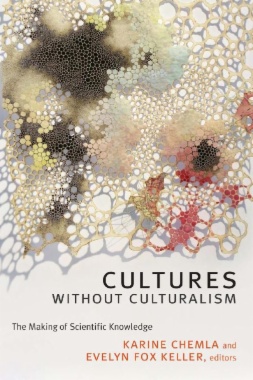Cultural accounts of scientific ideas and practices have increasingly come to be welcomed as a corrective to previous—and still widely held—theories of scientific knowledge and practices as universal. The editors caution, however, against the temptation to overgeneralize the work of culture, and to lapse into a kind of essentialism that flattens the range and variety of scientific work. The book refers to this tendency as culturalism. The contributors to the volume model a new path where historicized and cultural accounts of scientific practice retain their specificity and complexity without falling into the traps of culturalism. They examine, among other issues, the potential of using notions of culture to study behavior in financial markets; the ideology, organization, and practice of earthquake monitoring and prediction during China's Cultural Revolution; the history of quadratic equations in China; and how studying the "glass ceiling" and employment discrimination became accepted in the social sciences. Demonstrating the need to understand the work of culture as a fluid and dynamic process that directly both shapes and is shaped by scientific practice, Cultures without Culturalism makes an important intervention in science studies.
Contributors. Bruno Belhoste, Karine Chemla, Caroline Ehrhardt, Fa-ti Fan,Kenji Ito, Evelyn Fox Keller, Guillaume Lachenal, Donald MacKenzie, Mary S. Morgan, Nancy J. Nersessian, David Rabouin, Hans-Jörg Rheinberger, Claude Rosental, Koen Vermeir
- Cover
- Contents
- Acknowledgments
- Introduction
- Part I. Stating the Problem: Cultures without Culturalism
- 1. On Invoking “Culture” in the Analysis of Behavior in Financial Markets
- 2. Cultural Difference and Sameness: Historiographic Reflections on Histories of Physics in Modern Japan
- 3. The Cultural Politics of an African AIDS Vaccine: The Vanhivax Controversy in Cameroon, 2001–2011
- 4. Worrying about Essentialism: From Feminist Theory to Epistemological Cultures
- Part II. Distinguishing the Many Dimensions of Encultured Practice
- 5. Hybrid Devices: Embodiments of Culture in Biomedical Engineering
- 6. Glass Ceilings and Sticky Floors: Drawing New Ontologies
- 7. Modes of Exchange: The Cultures and Politics of Public Demonstrations
- 8. Styles in Mathematical Practice
- Part III. The Making of Scientific Cultures
- 9. Historicizing Culture: A Revaluation of Early Modern Science and Culture
- 10. From Quarry to Paper: Cuvier’s Three Epistemological Cultures
- 11. Cultures of Experimentation
- 12. The People’s War against Earthquakes: Cultures of Mass Science in Mao’s China
- Part IV. What is at Stake?
- 13. E Uno Plures? Unity and Diversity in Galois Theory, 1832–1900
- 14. Changing Mathematical Cultures, Conceptual History, and the Circulation of Knowledge: A Case Study Based on Mathematical Sources from Ancient China
- Contributors
- Index
- A
- B
- C
- D
- E
- F
- G
- H
- I
- J
- K
- L
- M
- N
- O
- P
- Q
- R
- S
- T
- U
- V
- W
- Y
- Z

